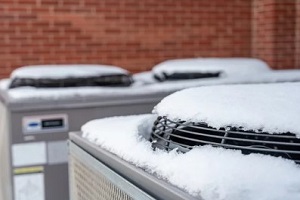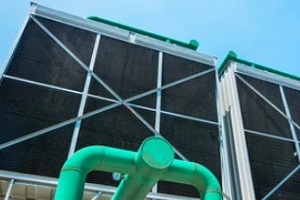 As the winter sets in, businesses should be prepared by planning their HVAC system maintenance. It’s important to not miss the window between fall and the first winter freeze to complete routine shutdown maintenance prior to winter.
As the winter sets in, businesses should be prepared by planning their HVAC system maintenance. It’s important to not miss the window between fall and the first winter freeze to complete routine shutdown maintenance prior to winter.
Lack of preparation could cost you down the road should an issue arise from the cold.
Why Is HVAC Maintenance Before Winter Essential?
Freezing temperatures can damage your HVAC system, and therefore preventative maintenance is required before winter hits. Protecting your equipment against the cold will ensure no issues arise prior to spring.
It is important to keep up with the needs of your system to avoid shutdowns or damage to equipment in the future. Here are 5 best practices to ensure your system is ready for the winter.
If your cooling tower is online, is your cooling tower heater working and is your make up line heat traced?
If your building requires your tower to remain online during the winter, it is important to be vigilant that your system is not affected by the cold. For winter operation, ensure that your tower has a submerged basin heater installed and that it is operational.
The water temperature should be evenly distributed. Heating will also be necessary for piping. Heat trace cables and proper insulation will guarantee that water does not freeze, and that flow does not slow down. These cables are installed on the outside of the pipes and though they are exposed to outside air can be easily replaced.
If your cooling tower is offline, is your cooling tower chemically layed up and drained below roof level? Is your makeup line drained?
As the cooling season ends, it is recommended you protect your cooling tower during the off season from the winter to ensure no issues come springtime. Your tower should have been cleaned leading up to shut down. Two weeks prior to your set shut down date, increase bleed to remove any loose debris.
 48 hours prior to turning off the tower, add a chemical layup solution to the system and allow it to circulate. Once you turn your tower off, drain your tower sump and remove any solid debris. Once drained, any surface will be passivated and protected against corrosion.
48 hours prior to turning off the tower, add a chemical layup solution to the system and allow it to circulate. Once you turn your tower off, drain your tower sump and remove any solid debris. Once drained, any surface will be passivated and protected against corrosion.
It is best practice to also remove strainers, and turn off all chemical pumps. The makeup line should be drained to ensure it does not freeze in the cold.
Does your closed loop circulate below 40*F?
In order to keep your closed loop systems running through winter, you need to guarantee flow by keeping your pipes from freezing. Systems with no freeze protection are subject to a potential pipe burst. Adding glycol to your system lowers the freezing temperature of water and allows it to keep circulating.
However, if you do not have enough glycol, water will slowly begin to freeze, and slush will form. Flow will begin to slow down, and the pumps will have to work harder to maintain flow. It’s also important to note that too much glycol will also reduce heat transferability because glycol does not carry heat as well as water.
If your system contains glycol is it at the proper freeze protection?
When using glycol for freeze protection, it is important to check and balance glycol levels. As mentioned above you cannot have too much or too little glycol as there are negatives to both.
With the proper glycol to water ratio, you avoid slush, and your water will still transfer heat efficiently. Keeping your system efficient is important to curb unnecessary energy costs and keep your pumps from overworking. Consult a professional to have your glycol tested and balanced.
Are outside air plenums closed to prevent freezing of air handler coils?
HVAC systems have plenums which bring in and distribute air. With outside air being brought into the system it is easy for debris or moisture to enter the air handler. If cold air and water enters the system, it can cause the coils to freeze, which can lead to several problems.
Ice or snow can damage filters, promote bacteria growth from sitting water on unit surfaces, cause leaks from melted water entering ducts and air handlers, and possibly corrode your AHUs and ducts.
Help From Our Experts
Mitigating the effects of cold weather on your HVAC system is crucial to guarantee your system works year-round. Not only is it important to protect your system in the short term from the effects of winter, but these best practices will also help extend the life of your system and prevent repairs or shutdowns.
For more information, reach out to our team of experts today at 212-518-6475 to learn more about how to best prepare for the winter season.
